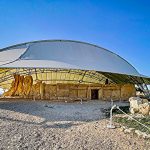FREE SEX FOR ALL IN PRE-HISTORIC TIMES IS NOT SUPPORTED BY PRIMARY APPLIED ETYMOLOGY and it may be another myth of a deeply misunderstood age
The common definition of promiscuity as free communal casual sex of indiscriminatory nature with whoever comes first and as frequently as possible does not appear to apply to pre-historic times and is not etymologically true. The popular concept of men roaming the wilderness with batons ready to knock any women they find unconscious then dragging them to caves for endless sex maybe nothing more than contemporary deprived men’s wishful thinking thrown back scores of thousands of years.
We have finished analysing several ancient linguistic clusters covering a number of social categories including famine, sickness, death, the relationship between man and woman, the cosmetics used by women, children and other related issues. The root for son is the same root for daughter, the word for woman is the same word for man. Sex was plenty as there are two powerful clusters to cover but if you think of ancient roots like a page then the front page covers sex but the back page is purely social.
In the so called “Semitic” languages, the main two linguistic clusters of the sex category are ‘R/*R’ and *KN/*NK. surprisingly both link sex to co-habitation, home-making and children. The *’R/*R’ go further to include prefixed and suffixed specifier extensions that include words for “inheritance”, “children raising”, “mending” and “perfume” (‘rij). Both clusters are represented in Akkadian. The entry for ‘niāku’ (*NK) includes: to rape, to have sexual intercourse, to fornicate; G: [muruṣ nâki]: venereal disease; (Gtn) to sleep around; Š: to permit intercourse.
This is to be expected since the word “fuck” could involve all of this. However, when you study the specifiers of the reversed bilateral root, *KN, the meanings move to express social concepts. An example is ‘kinnanû’ “[dialect=272]: [Human → Family]: (synonym of): father.” “Father” is not the correct meaning but “father of the bride” (Ar.). Kinnah is “daughter in law” (Ar.).
The conclusion looks clear. If the boy screws the girl and doesn’t move in with her into their new home fast, her parents will screw him. This is reasonable since they had no contraceptive pills so a girl can become pregnant after any bang.
The deal appears the norm – she opens her legs for him and he open a home for her. Otherwise how is one to explain the etymological fact that *NK “fuck” is closely connected with its reversed sister *KN “relative, daughter in law, a place to huddle in together.” And watch this: Another linguistic structure is called Prefixed specifier extension (a suitable letter + root, in this case s+root= skn, “to live in, to live with”. A further extension of the trilateral word (skn) is ‘maskan”, “a home”.
From the same *KN is ‘kīniš’: [Moral life → Conscience]: reliably, genuinely, faithfully, truly, duly, legitimately, righteously, verily (?), properly (?), indeed (?), trust worthily (?).
If a group of our prehistoric ancestral fathers were to find their way somehow into our societies they may be shocked. To promote pizza by an almost naked girl sucking at in bed may not be to their liking.
The Akkadian entry ‘Kinūnu’: “[Time → Month] tenth month of the year (approximately October-November)” is very interesting. It may be obvious that it is a suffixed specifier of *KN but how is it connected with it? The October-November period is cold. Families huddle together around “a Kanun”, a fire stove that would have been a carved stone or a copper pot. Several thousand years later in Damascus, just across the desert between Mesopotamia and Syria, a similar shaped pot was made of steel. This is the same Kanun, known in English as “cannon”, an early piece of artillery.
We’ve kept our most convincing proof till last: Here it is: *NK+ḥ = NKḥ: “to screw, to be betrothed to, to marry” (Arabic نكح). NiKaḥ: “marriage”. It is even mentioned in the Quran.
Last modified: September 1, 2022



